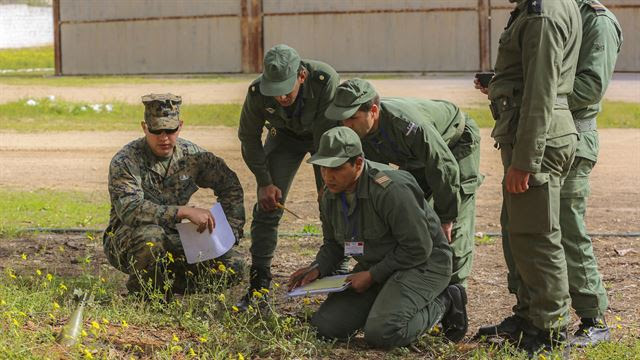Marines.mil
Press release
(U.S. Marine Corps photo by Cpl. Olivia McDonald/Released)
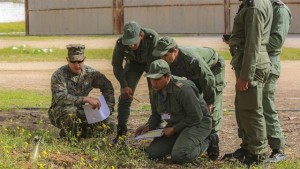
Students from across the Moroccan military branches are working together with U.S. Marines from Special-Purpose Marine Air-Ground Task Force Crisis Response-Africa to build up Morocco’s demining capabilities.
The training is part of the U.S. Humanitarian Mine Action Program, formerly called U.S. Humanitarian Demining Program, which has been assisting partner nations in developing their mine action capacity since 1988. The program aims to educate and train the host nation on removing explosive remnants of war, or ERW, in post-conflict areas, while relieving human suffering.

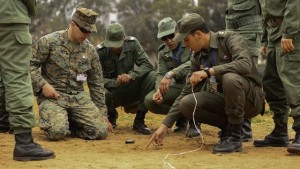
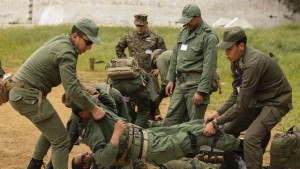
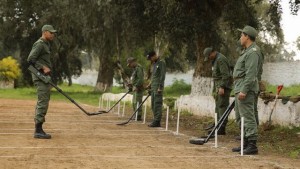
The Marines, based out of Naval Air Station Sigonella, Italy, began training the Moroccans, Feb. 22, at the host nation’s request and in coordination with the U.S. Embassy in Rabat. The Marines also worked alongside Utah Air National Guard and National Guard EOD technicians and engineers, respectively.
“In July 2008, Morocco reported that a total of 2,187 casualties (544 killed and 1,643 injured) had been recorded since 1975,” according to the Landmine and Cluster Munition Monitor which monitors progress in eliminating landmines, cluster munitions and other ERW around the world.
While Morocco, a major non-NATO ally, has not joined the 1997 Mine Ban Treaty, it has been an active observer at an annual Meeting of States Parties and Standing Committee meetings and submitted three volunteer Article 7 reports since 2006 regarding treaty implementation activities. In November of 2009, Morocco reported it had “cleared 561km2 of area, destroying in the process 482 mines, 2,628 ERW, and 22,105 pieces of small arms ammunition.”
Beginning in early 2007, Morocco has been engaged in major demining operations including areas outside their borders. As they make these steps toward eliminating these destructive materials, a need arises for Morocco to have their own self-sufficient trainers and formal EOD capabilities.
The five-week program is the first phase in which the U.S. military members are testing the Moroccans’ basic EOD level one capabilities and covering effective communication and instructing methods. These soon-to-be instructors will validate their abilities in the follow-on train-the-trainer iterations as Morocco aims to establish their own demining center of excellence and EOD school within their military.
“Moroccans don’t actually have a formal EOD program, so they are utilizing other countries to get their training,” said Staff Sgt. Phil Mayer, an EOD technician with SPMAGTF-CR-AF. “They have requested assistance from us to help create a program so they can eventually create their own EOD technicians and have a formal school for their military.”
Developing safe and effective technicians is not an easy task. U.S. military members seeking to be EOD technicians must complete a total of nine rigorous months of training before they are able to claim that title.
In order to build up the Moroccan program properly, the training conducted focused on basic EOD knowledge and skills. The purpose of this iteration is to perfect these capabilities and develop knowledgeable instructors before advancing the training.
“Our intent with this training is to assist in the creating of EOD level one instructors,” Mayer said. “Hopefully in the future we can help them develop a formal EOD school and the Moroccans can have their own EOD technicians.”
The U.S. instructors covered ordnance identification, safeties, basic demolition and basic combat casualty care. Live explosives were not used during the training, but the students now know how to positively identify ordnance and safely destroy it.
Mayer said he is impressed by the hard work and progress made during the training.
“Their performance during this training revolution has been outstanding. The students are very receptive and motivated,” Mayer said. “They have a lot of drive and initiative to learn all the material we’ve been giving them and they are retaining all the information. This is by far the best experience I’ve ever had training with a foreign military.”




